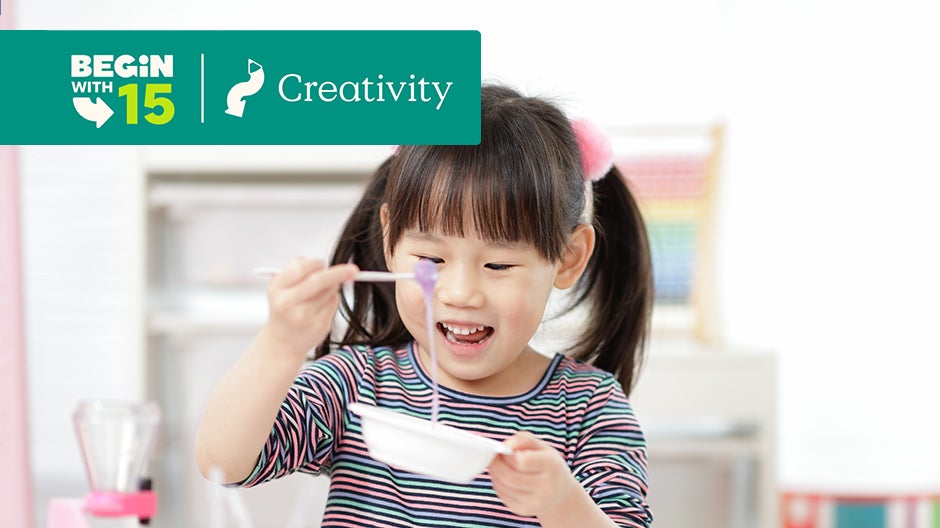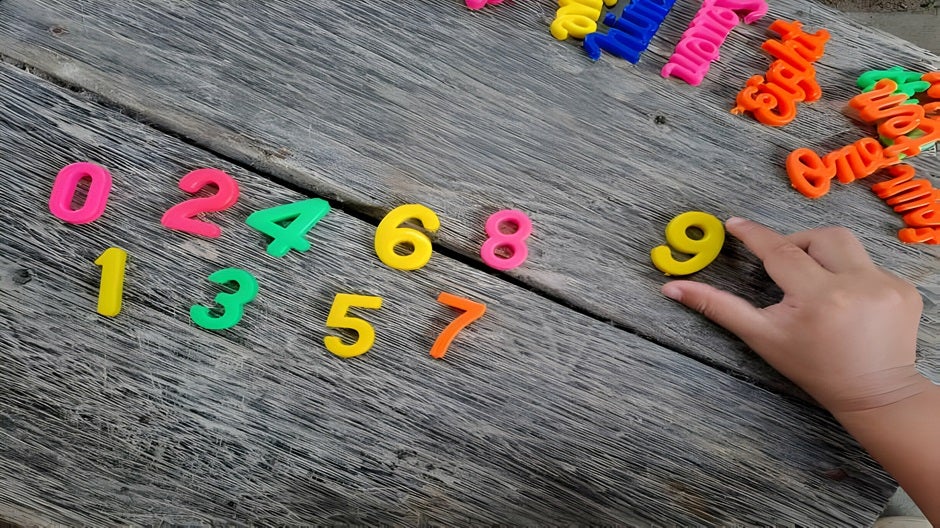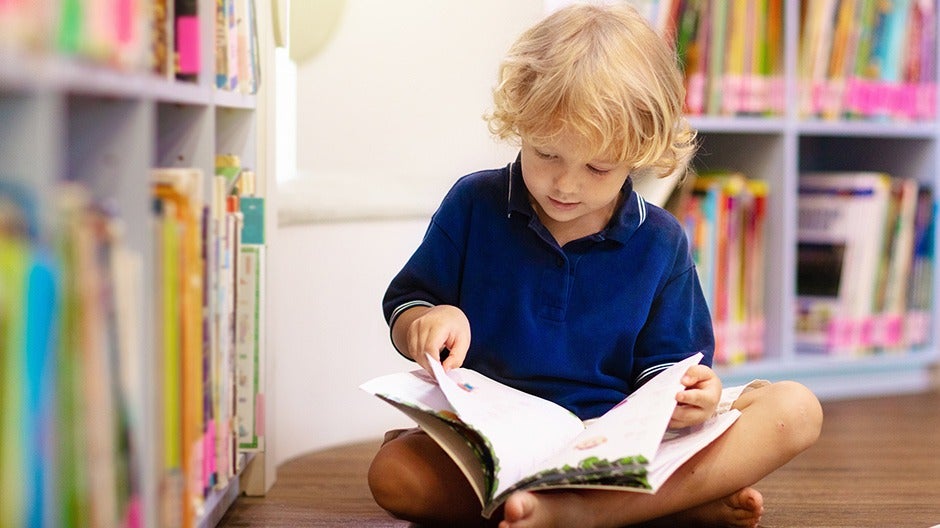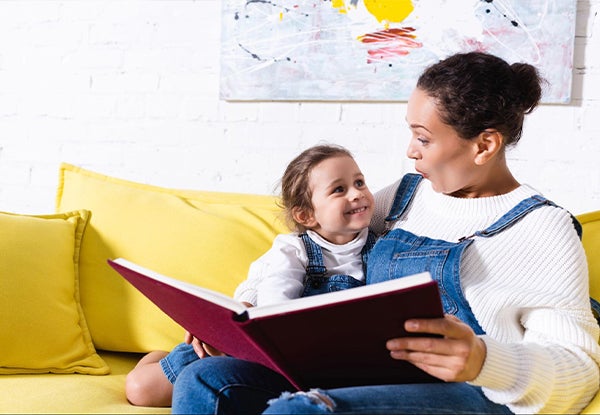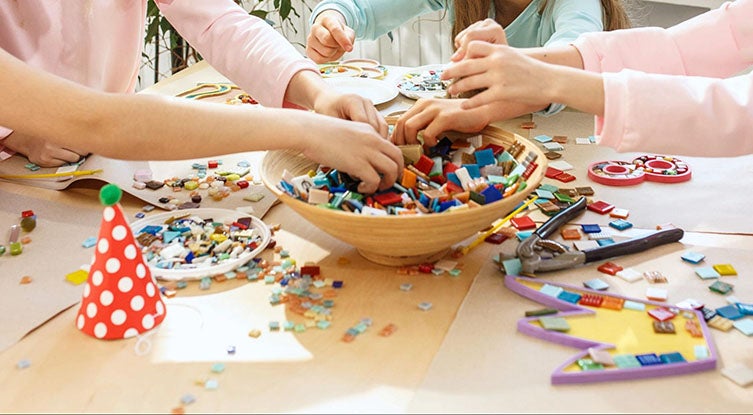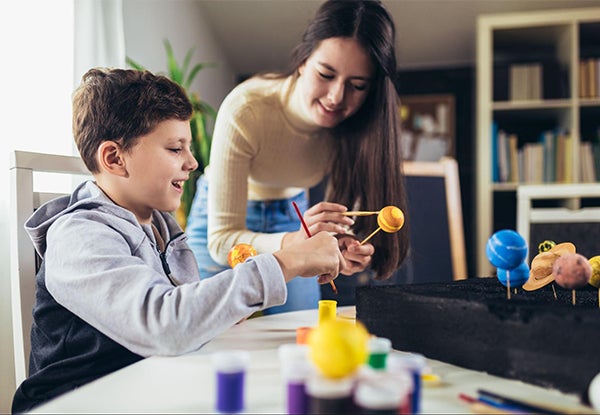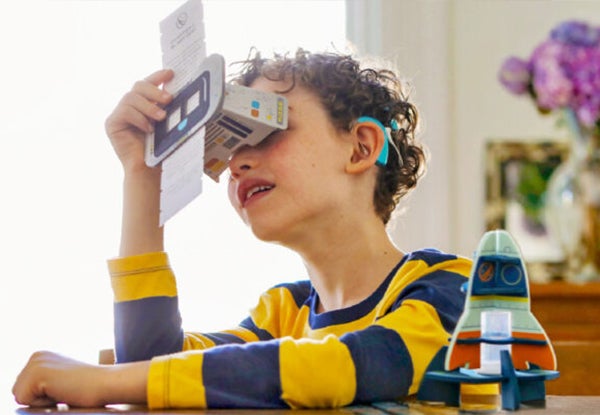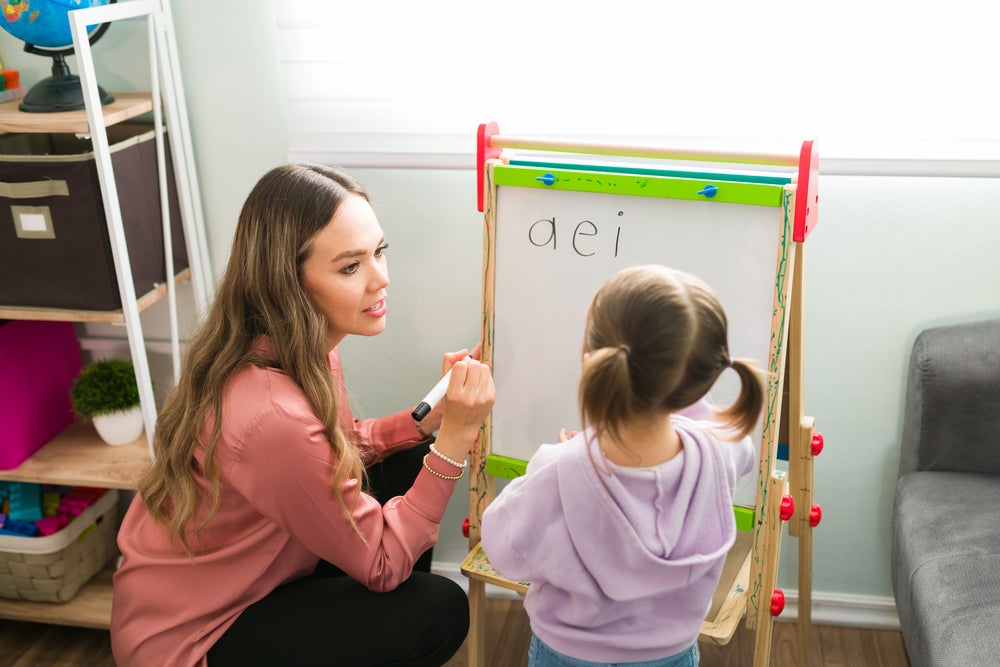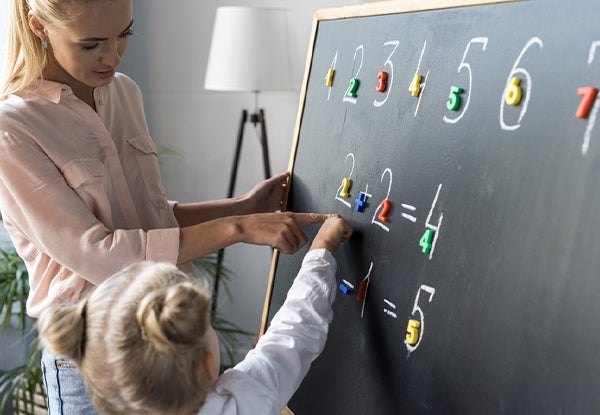As a parent, you want your child to be a strong reader. But teaching them to read can be daunting, especially if you’re not sure where to start. That’s where a reading program for kids comes in.
This guide will show you how to support your child’s reading journey, from letter sounds to reading fluently. Let’s get started!
Table Of Contents
- What Is a Reading Program for Kids?
- What to Look for in Reading Programs for Kids
- The Begin Reading Program for Kids
- Tips for Using a Reading Program
- Other Tips for Helping Your Child Learn to Read
What Is a Reading Program for Kids?
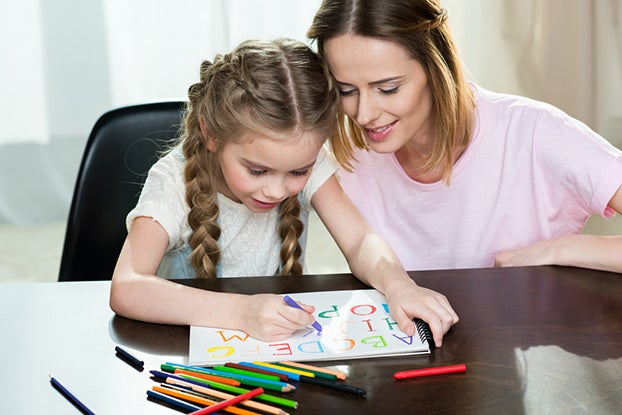
Reading is a core skill, one of the 5 C’s—along with creativity, critical thinking, curiosity, and character—at the heart of the Begin Approach to helping kids thrive in school and life. Many parents turn to a reading program to help children learn to read.
This is a structured approach to teaching reading. These programs typically include various activities, resources, and techniques to help children develop essential reading skills.
Benefits of a Reading Program for Kids
Using a reading program for kids has many advantages. These include:
- Structured learning. A well-designed reading program provides a clear plan and teaching tools to guide your child’s progress from beginner to fluent reader.
- Increased confidence. A reading program can help build your child’s confidence in their reading abilities by providing step-by-step instruction and practice opportunities.
- Individualized instruction: Many reading programs offer personalized assessments and learning plans catering to your child’s unique needs and preferences.
- Focus on key reading skills. A good program focuses on building key reading skills such as phonics, sight words, fluency, and comprehension. This strong foundation sets children up for success in all areas of literacy.
- Support for parents. Some programs offer resources and guidance for parents to help support their child’s learning at home. This can be especially helpful for busy parents looking to supplement their child’s education.
As you work through a reading program with your child, you’ll likely see improvements not only in their reading skills but also in their overall academic performance.
That said, it’s important to remember that each child learns at their own pace and may need additional support to reach their full potential. And that’s OK!!
Reading Skills to Teach
A good reading program for kids should cover all five essential literacy components: phonemic awareness, phonics, fluency, vocabulary, and comprehension.
Let’s look more closely at each one.
Phonemic Awareness
Phonemic awareness is the ability to recognize and manipulate individual sounds, or phonemes, in words. This skill helps children understand the relationship between letters and sounds.
Activities that promote phonemic awareness include rhyming, sound blending, and segmenting words into individual sounds.
Phonics
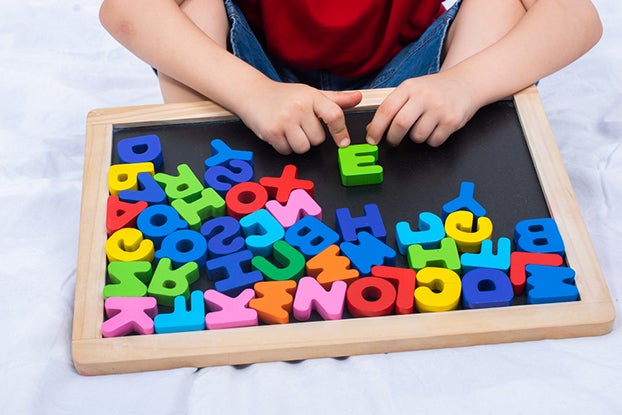
Phonics is the understanding of how letters and letter combinations represent specific sounds. Children can read by sounding out each letter or group of letters in the word.
Some phonics activities include matching letters to their corresponding sounds, building words from letter tiles, and playing word games focusing on different letter patterns.
Fluency
Fluency is reading accurately, quickly, and with expression. This skill helps make reading more enjoyable since your child won’t struggle to decode every word in a passage.
To improve fluency, encourage your child to practice reading aloud and read different types of texts. You can also use repeated readings and work on sight words.
Vocabulary
Vocabulary is the understanding of words and their meanings. A rich vocabulary allows children to make sense of what they’re reading and connect what they read with their own experiences.
One simple way to expand your child’s vocabulary is to talk together daily. You can also read various books, discuss new words they encounter, and play word games.
Comprehension
Comprehension is the ability to understand and interpret what you read. It involves making connections, predicting outcomes, and summarizing information.
To improve comprehension skills, encourage your child to ask questions while reading and try to predict what’ll happen next. You can also have them summarize what they read in their own words.
What to Look for in Reading Programs for Kids
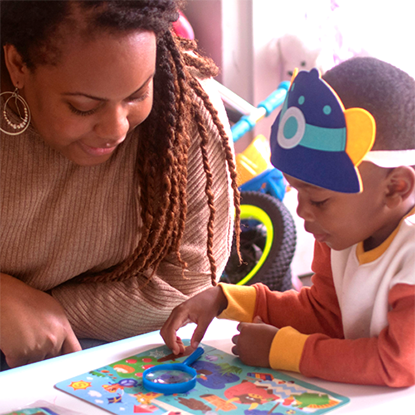
With so many reading programs for kids available, it can be overwhelming to pick the best one for your child. Here are some key factors to consider when looking for a reading program.
- Age-appropriate materials: Choose a program suitable for your child’s age and reading level. Ideally, the program will be personalized to the child’s ability and interests. Preschool is a great time to start introducing early reading skills.
- Research-based: Make sure your chosen program has been developed based on research and evidence-based teaching methods.
- Multi-sensory approach: Look for programs incorporating visual, auditory, and hands-on activities to appeal to different learning styles. A blended learning approach, with part digital and part real-world application, can be beneficial.
- Progress tracking: Choose a program that tracks your child’s progress and provides regular reports to inform you of their development. This allows you to see areas where they may need extra help.
- Flexibility: Consider a program that offers flexible scheduling, allowing you to fit it into your child’s daily routine without disrupting other commitments.
The Begin Reading Program for Kids
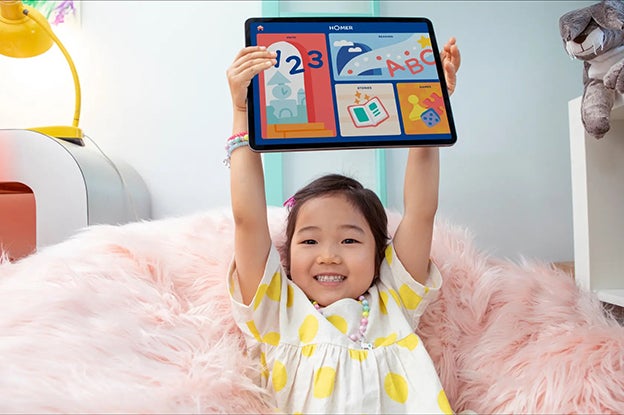
At Begin, we believe that every child has the potential to become a strong reader. Our comprehensive reading program for kids focuses on developing the critical pillars of literacy listed above.
Within Begin’s learning products, you can choose HOMER’s reading pathway, which teaches phonemic awareness, decoding, comprehension, fluency, and writing. The HOMER app is a proven way to help your child master fundamental reading skills and gain confidence.
Using the HOMER app for just 15 minutes a day can significantly improve your child’s reading abilities. Our program is designed to adapt to each learner’s needs, ensuring they get the right amount of challenge and support. It’s personalized for their interests and abilities.
By choosing HOMER by Begin, you’re giving your child the best chance at developing strong literacy skills that will benefit them for a lifetime. You can get a 30-day free trial, so sign up to see the results for yourself!
The Begin Method of Learning to Read
Our research-based, four-step approach helps build confidence and promote a love of learning. It follows an explicit, systematic, and sequential approach to reading instruction that’ll have your child excited to learn.
Let’s take a closer look at the four steps.
Introduce
Spark your child’s enthusiasm for learning by introducing new skills or topics alongside essential vocabulary. That way, they have the words to describe what they’re learning.
The engaging activities and lessons on the HOMER app make reading fun while ensuring the development of foundational skills.
They’ll follow a proven, step-by-step pathway from letter identification to sight words, all while using phonemic awareness and letter-sound relationships to build phonics skills.
Practice
Practice makes perfect, and our reading program offers ample opportunities for your child to practice their new skills. The more they practice, the better they’ll become at decoding words, understanding meaning, and building fluency in reading.
Our hands-on learning kits provide a multisensory approach to practice that caters to different learning styles.
Apply
Our interactive games and puzzles allow your child to apply their new skills. Play is a crucial part of learning in early childhood, and the HOMER app integrates playful elements to reinforce reading skills.
Its story-based games, songs, and challenges will keep your child engaged and motivated to continue learning.
Transfer
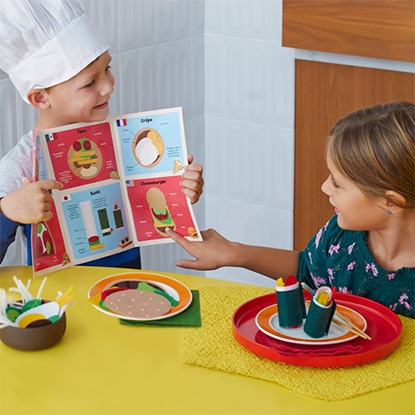
Your child won’t always have the app’s support and feedback when reading. That’s why our reading program for kids focuses on helping them transfer their skills to real-world situations.
Our Little Passports kits allow children to practice reading while exploring different topics and themes.
For example, with the Kitchen Adventures subscription, they’ll:
- Read recipes
- Create shopping lists (which require both reading and writing)
- Read to discover information about the food and its country of origin
- Follow directions to complete a craft or another interactive project
These activities help your child see the real-life applications of their reading skills. It can quickly build self-confidence and motivate your child to keep learning.
With the four steps of Begin’s reading program, you can trust that your child will receive quality literacy instruction to build the foundation for a love of learning that’ll last a lifetime.
Tips for Using a Reading Program
Whether you choose HOMER by Begin or another reading program, here are some quick tips to help your child succeed.
Be Consistent
Set a regular schedule for reading practice and stick to it. Your child will benefit from consistent practice, even if it’s just 15 minutes a day.
Frequent, shorter reading sessions are more effective than infrequent, longer ones, so prioritize reading time each day.
Learn Together
Make reading a shared activity by taking turns reading aloud or discussing the story and characters. This can help keep your child motivated and engaged.
And when your child sees you reading, they’re more likely to develop a love for it as well. Lead by example and make reading a part of your family’s routine.
Spend Time Reviewing
Even if your child seems to have mastered a letter sound or sight words, it’s important to continue reviewing and practicing. Repetition is key for young children to solidify their understanding of letters, sounds, and words.
As you introduce new skills, review something they’ve already learned for a few minutes. This will ensure it stays fresh in their mind.
Celebrate Progress
As your child improves, acknowledge their hard work and celebrate their achievements. Here are a few specific milestones you can watch for:
- Letter recognition: When you show your child a letter, can they correctly identify it by name and sound? This is an early sign that they’re developing critical pre-reading skills.
- Rhyming: Can your child produce pairs of rhyming words such as car and star? Rhyming is a key skill that helps children identify and manipulate sounds in words.
- Retelling a story: While your young reader might get a bit bogged down in the details and take forever to tell you about a short story, hearing them retell a story in their own words is an exciting milestone. It shows they can remember the main points of the story.
- Writing letters independently: Your toddler’s scribbles will soon turn into recognizable letters. Celebrate the first time they write a letter on their own, even if it’s crooked or backward.
- “Reading” a logo: When a child can “read” a familiar logo like McDonald’s or Target, it shows they understand that symbols have meaning. And since letters are symbols, this is a step toward reading words.
- Reading simple words: Seeing your child sound out and read their first words independently is a proud moment for any parent. Keep practicing with these simple, short vowel words and watch as they become more confident readers.
Encourage Independent Reading

Along with practicing together, children need to have time to read on their own. Encourage this by providing books that align with their interests and abilities.
When selecting books for independent reading, consider your child’s reading level. Books that are too hard can be discouraging, while books that are too easy may not challenge them enough.
Look for books with simple sentences and familiar vocabulary, and gradually increase the difficulty as your child improves. Their first books may only have one or two words on each page, and that’s OK! It won’t be long before they’re reading harder books.
Be Patient
Reading success doesn’t happen overnight. Your child will take steps forward and back as they learn and grow. Be patient and supportive, focusing on their progress rather than demanding perfection.
Remember that everyone learns at their own pace, so don’t compare your child’s reading abilities to their peers. Instead, focus on their unique journey and the joy of learning together.
With time, practice, and patience, your child will become a confident reader.
Stay Informed
Keep track of your child’s progress through the reading program and utilize any parent resources provided. This way, you always know what skills your child is working on and can help them through a tough spot if they need extra support.
Other Tips for Helping Your Child Learn to Read
Now that you know what a reading program for kids is, let’s look at some things you can do to help your child learn to read.
Read Aloud from the Start
Create a love for books by reading aloud to your child every day from the time they’re a baby. You’ll build their vocabulary and improve their listening and comprehension skills.
Once they’re old enough, let them choose the books they want to read, even if they want the same ones every day. Repetition is so important when learning to read!
When you read, model good reading behavior. Before you start reading, show your child the cover and some illustrations and ask them what they think the book will be about. Point to the words as you read and stop occasionally to ask questions.
It’s incredible how much your child will pick up on just by watching you.
Start with Letter Recognition Activities
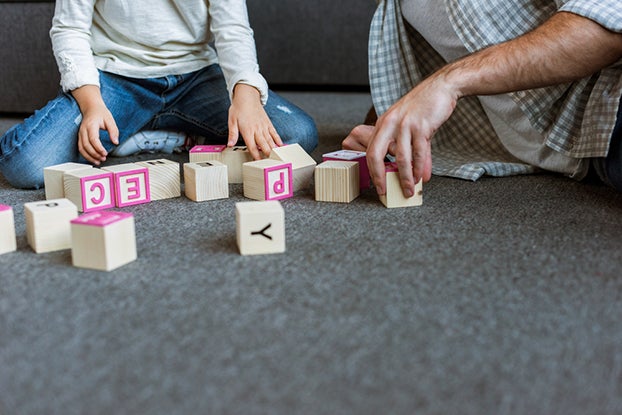
Introduce your child to the alphabet and letter sounds through fun activities like singing songs, circling letters in the newspaper, or playing with magnetic letters (like the ones in the Explore Letters Kit.)
As they play, reinforce each letter’s sound and encourage them to make connections with words they know, such as their name.
Practice Sight Words
Make flashcards with common sight words, such as “the,” “said,” and “it.” Practice a few words at a time to help your child master them.
Since sight words make up nearly 75% of all written material in children’s books, being able to read these quickly will make reading more enjoyable.
Once your child knows a few sight words, let them read those words when you share a book together. Simply pause and point to the word so they can practice reading it.
Engage in Hands-On Activities
Kids love to learn through play! Incorporate hands-on activities into your child’s learning experience.
Here are a few ideas:
- Create letter collages with pictures of objects starting with a specific letter
- Write letters in shaving cream on a tray
- Go on a scavenger hunt for rhyming objects
- Play sight word hopscotch
- Write a book together using words your child knows
- Sign up for HOMER Early Learning Kits
- Throw rolled-up socks at words written on sticky notes
Visit the Library
Take a field trip to your local library and let your child explore different books. Encourage them to choose a few books to take home and read together.
Many libraries also have additional resources that can help encourage a love of reading. Find out if yours has:
- Storytime
- Online resources like ebooks or audiobooks
- Educational games to check out
- Early reader books designed to teach a child to read
- Reading challenges or programs for kids
Plus, visiting the library exposes your child to a variety of books that they might not read
Encourage Reading Beyond Books
Books aren’t the only thing your child can read. Encourage them to look for words they recognize when you’re out and about.
Point out words on signs and labels in the environment around you. This promotes reading in a real-life context and helps your child see the purpose and value of reading. It’s a great way to help them transfer their knowledge from the classroom to the real world.
Focus on Vocabulary
Vocabulary isn’t just a set of random words for your child to memorize. It’s an essential building block for reading comprehension and fluency. It also unlocks the world of language and allows your child to express themselves more effectively.
To build vocabulary, try incorporating these activities into your daily routine:
- Identify new words in stories and discuss their meanings together
- Use synonyms and antonyms in everyday conversations
- Encourage your child to use new words they’ve used in context
- Play word games like charades or Pictionary
- Narrate your day; tell your little one about what you’re doing and use new vocabulary words in context as you do.
Build Background Knowledge
Research has shown the importance of background knowledge in learning. The more your child knows about a topic, the easier it’ll be for them to understand and retain new information.
Exposing your child to different experiences, such as visiting a museum or trying a new food, can help build background knowledge. Reading specific book genres, such as historical fiction or non-fiction, can also help.
These activities can spark your child’s interest and curiosity, making them more engaged in learning.
Make Reading Fun
Reading should be enjoyable! Look for ways to engage your child and keep them interested.
Here are some ideas for bringing reading to life:
- Use props or costumes to act out scenes from stories
- Cook some food mentioned in a story you read together
- Create a scavenger hunt using words from your child’s sight word list
- Draw pictures of your favorite characters
- Ask your child to retell the story using different voices to represent each character
- Find rhyming words for some of the words in the story
- Read outside on a nice day or create a cozy reading nook at home
When you make reading fun, your child won’t realize how much they’re learning.
Seek Additional Support if Needed
As we’ve mentioned, every child learns at their own pace, and some may need extra support when developing reading skills. If you notice your child is struggling, don’t hesitate to seek help from a reading specialist or tutor.
Reading Begins with Begin!
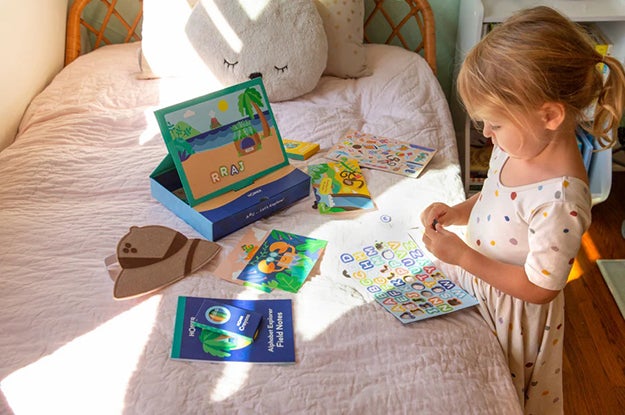
The right reading program for kids can help build a strong foundation for lifelong learning. With HOMER by Begin, your child can gain the skills and confidence to become a successful reader.
Plus, the Begin early learning products help kids learn the skills they need most to thrive in school and beyond. You’ll be amazed at how quickly they learn!



